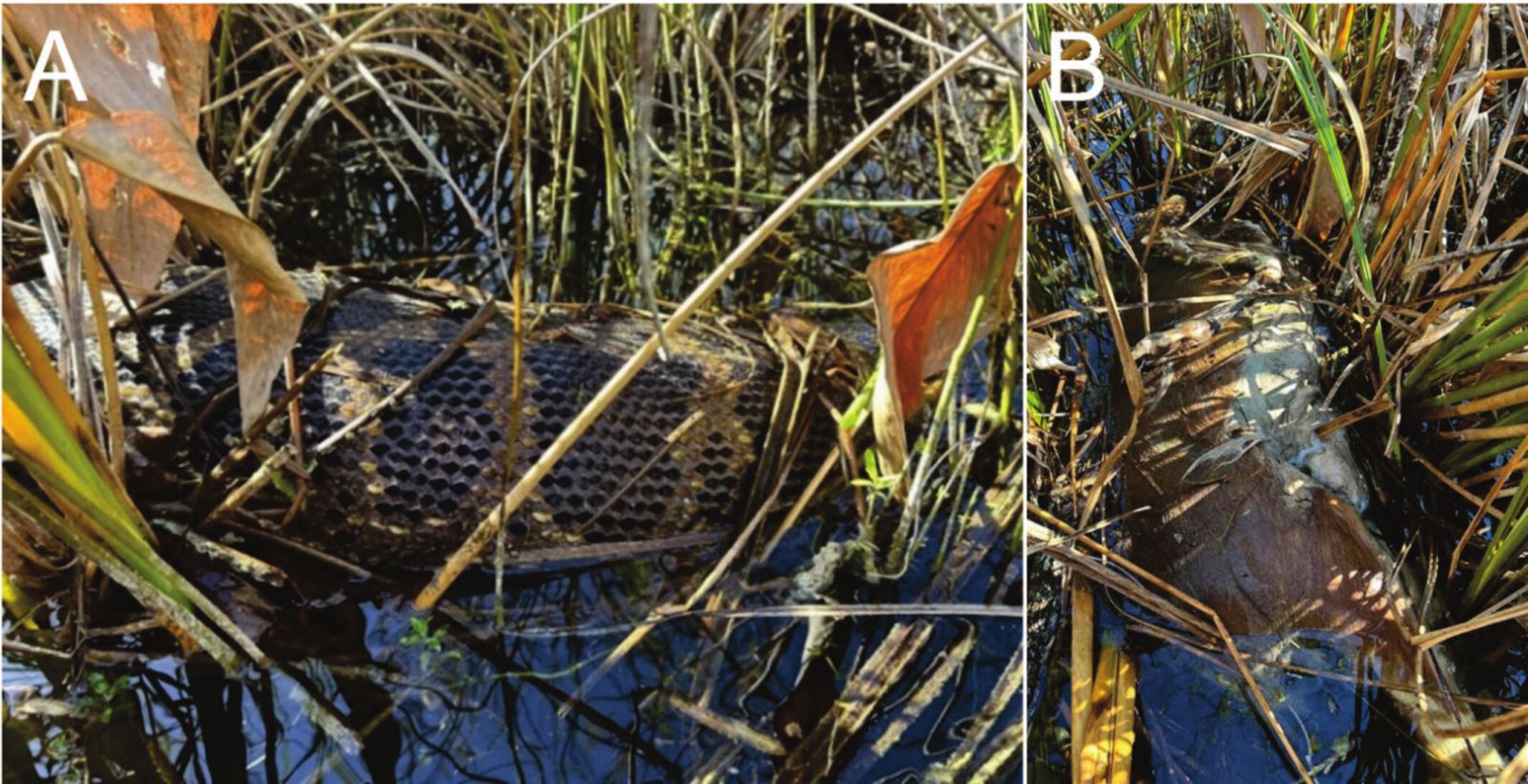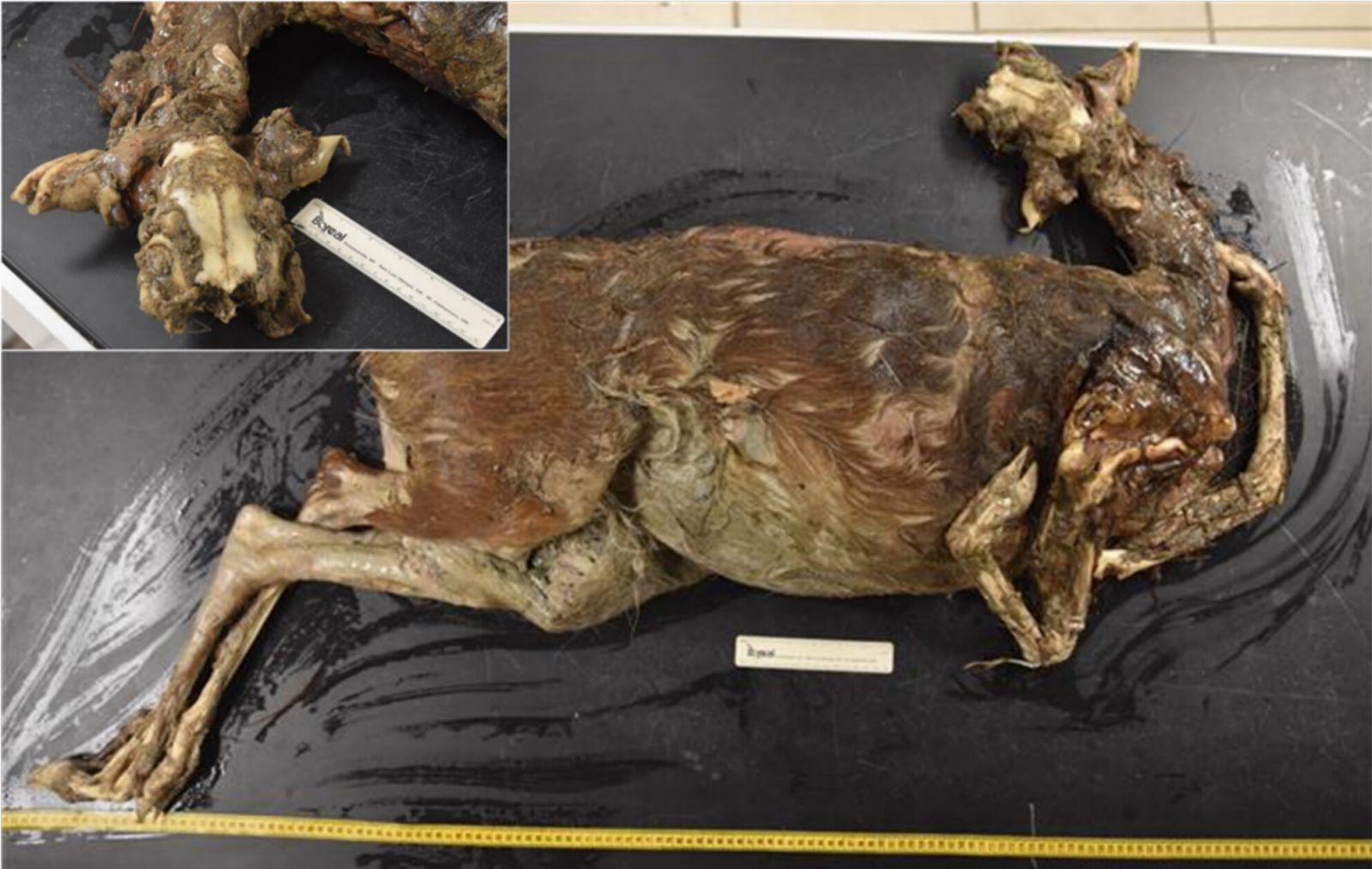🐍 Invasive python regurgitates entire deer in Florida: a first!
Follow us on Google News (click on ☆)
Burmese pythons, native to Southeast Asia, are ectothermic animals, meaning their body temperature depends on that of their environment. When the mercury drops below 50 degrees Fahrenheit (10°C), their biological functions slow down significantly. Digestion, a process requiring heat, then becomes inefficient, potentially leading to prey fermentation in their stomach.

(A) A Burmese python with a large food bolus.
(B) White-tailed deer vomited by the Burmese python before collection for laboratory evaluation.
Photo credit: Travis R. Mangione.
This observation, published in the journal Ecology and Evolution, is the first of its kind observed in the wild. Researchers from the U.S. Geological Survey and the National Park Service were tracking several snakes to study their impact on local wildlife. The deer, barely digested after ten days, shows how much cold disrupts the metabolism of these snakes.
The ecological consequences are significant. The python, having lost an essential meal, could see its reproduction affected, potentially limiting its invasive population. However, if it seeks to compensate by hunting again, it worsens the decline of deer, which are already threatened and necessary for native predators like the Florida panther.
This discovery helps understand the limits of python expansion in the United States, linked to the minimum temperatures they can withstand. Studies continue to elucidate the digestive mechanisms of these reptiles, still poorly understood despite their decades-long presence in Florida.

Side view of the partially digested white-tailed deer vomited by the Burmese python.
Photo credit: Grant S. McCargar.
Ectothermy and digestion in snakes
Snakes are ectothermic animals, meaning they do not produce their own body heat and depend on external sources to regulate their temperature. This characteristic directly influences their metabolism, including digestion.
When ambient temperature drops, snakes' digestive enzymes become less active, slowing down food digestion. This can lead to bacterial accumulation in the stomach, causing potential infections.
To avoid this, snakes have developed an adaptive response: regurgitation. By expelling stomach contents, they eliminate risks related to putrefaction, even though it costs significant energy.
This adaptation allows them to survive in environments with variable climates, but makes them vulnerable during rapid temperature changes.
Impact of invasive species on ecosystems
Invasive species, like the Burmese python in Florida, can profoundly alter local ecosystems by competing with native species for resources.
Their often accidental introduction disrupts established food chains. For example, increased predation on prey like deer reduces their populations, affecting in turn top predators.
Understanding the biology of these invasives, including their physiological limits, helps predict their expansion and minimize ecological damage.